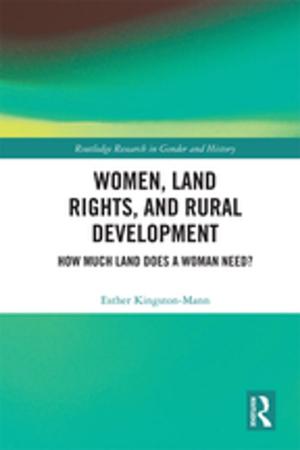Stop and Search
Police Power in Global Context
Nonfiction, Social & Cultural Studies, Social Science, Crimes & Criminals, Criminology| Author: | ISBN: | 9781317981138 | |
| Publisher: | Taylor and Francis | Publication: | June 11, 2014 |
| Imprint: | Routledge | Language: | English |
| Author: | |
| ISBN: | 9781317981138 |
| Publisher: | Taylor and Francis |
| Publication: | June 11, 2014 |
| Imprint: | Routledge |
| Language: | English |
Police powers to stop, question and search people in public places, and the way these powers are exercised, is a contentious aspect of police-community relations, and a key issue for criminological and policing scholarship, and for public debate about liberty and security more generally. Whilst monitoring and controlling minority populations has always been a feature of police work, new fears, new ‘suspect populations’ and new powers intended to control them have arisen in the face of instability associated with rapid global change. This book synthesises and extends knowledge about stop and search practices across a range of jurisdictions and contexts. It explores the use of stop and search powers in relation to street crime, terrorism and unauthorised migration in Britain, North America, Europe, Australia, Africa, and Asia. The book covers little researched practices such as road-blocks and ID checking, and discusses issues such as fairness, effectiveness, equity and racial profiling. It provides a substantive and theoretical foundation for transnational and comparative research on police powers in a global context.
This book was originally published as a special issue of Policing and Society.
Police powers to stop, question and search people in public places, and the way these powers are exercised, is a contentious aspect of police-community relations, and a key issue for criminological and policing scholarship, and for public debate about liberty and security more generally. Whilst monitoring and controlling minority populations has always been a feature of police work, new fears, new ‘suspect populations’ and new powers intended to control them have arisen in the face of instability associated with rapid global change. This book synthesises and extends knowledge about stop and search practices across a range of jurisdictions and contexts. It explores the use of stop and search powers in relation to street crime, terrorism and unauthorised migration in Britain, North America, Europe, Australia, Africa, and Asia. The book covers little researched practices such as road-blocks and ID checking, and discusses issues such as fairness, effectiveness, equity and racial profiling. It provides a substantive and theoretical foundation for transnational and comparative research on police powers in a global context.
This book was originally published as a special issue of Policing and Society.















